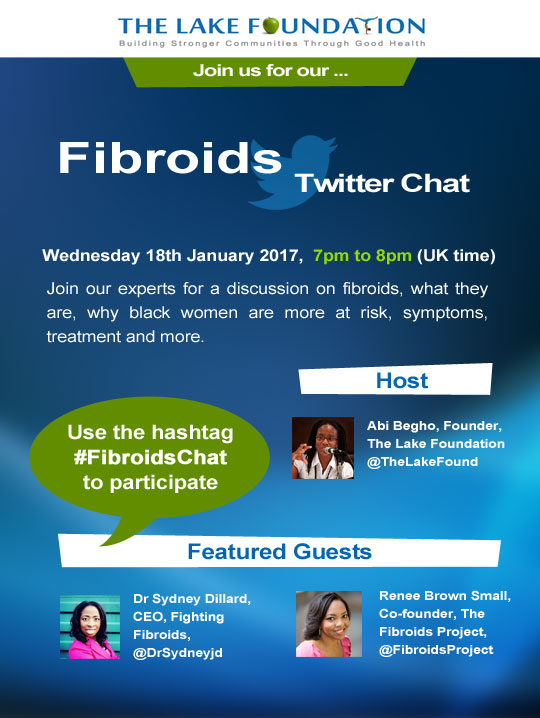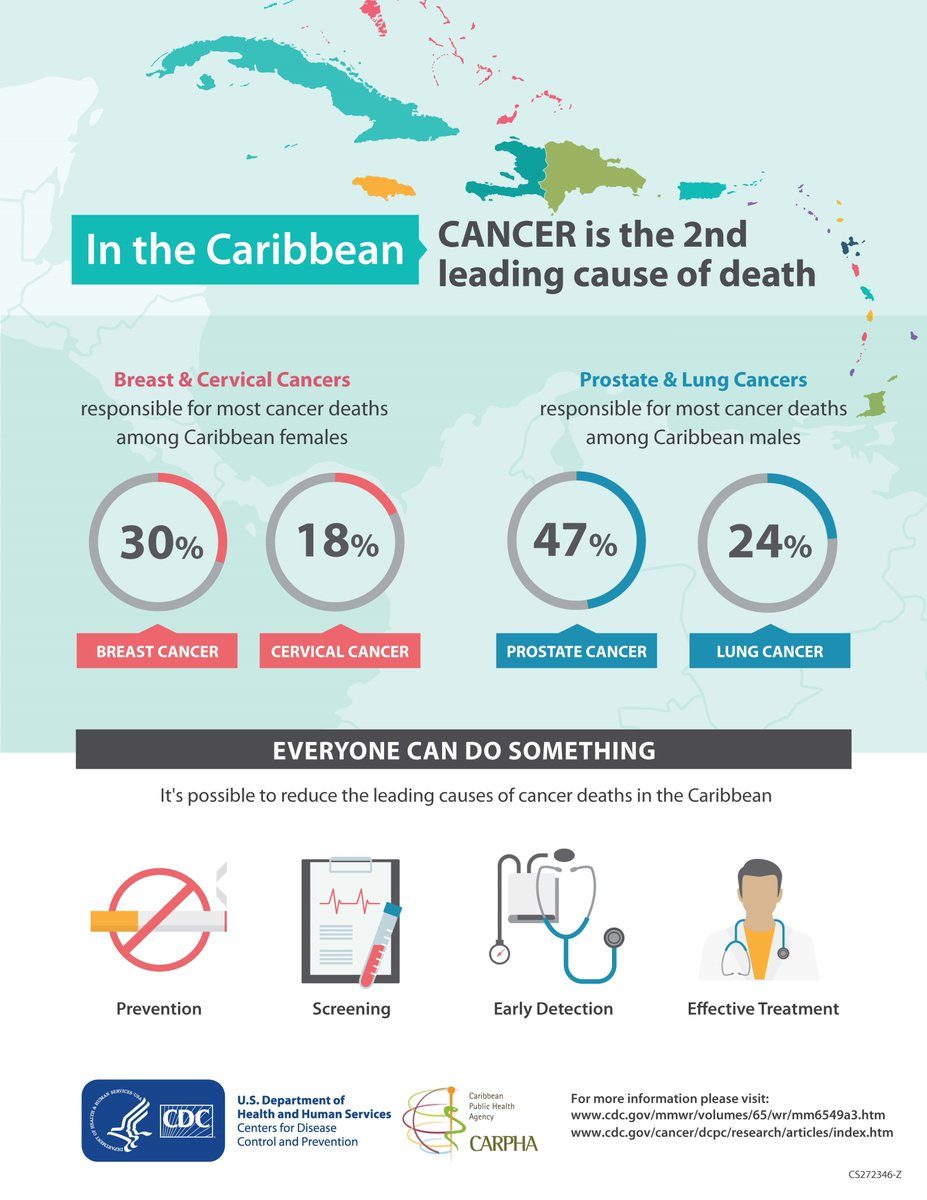Did you miss our fibroids Twitter chat with Dr Sydney Dillard and Renee Brown Small?
Last night, we were so excited to host our first fibroids Twitter chat. We were joined by special guests Dr Sydney Dillard, CEO of Fighting Fibroids and Renee Brown Small Co-founder of The Fibroids Project with host, our own Abi Begho, founder of The Lake Foundation.
If you missed our Twitter chat you can check out our conversation below and look out for our next Twitter chat on Wednesday 15th February at 7pm (UK time).
Update June 2018: Please note that tweets from Renee Brown Small are no longer available so some information is missing from the chat below.
Hello all, it’s @AbiBegho here and it’s my pleasure to welcome you to The Lake Foundation’s first #fibroids #Twitter chat. #FibroidsChat
— Lake Health and Wellbeing (@lakehealthwell) January 18, 2017
Fibroids are a common, but rarely spoken about #WomensHealth issue and we want to raise awareness and provide women with info #FibroidsChat
— Lake Health and Wellbeing (@lakehealthwell) January 18, 2017
Fibroids are a common, but rarely spoken about #WomensHealth issue and we want to raise awareness and provide women with info #FibroidsChat
— Lake Health and Wellbeing (@lakehealthwell) January 18, 2017
Over the next hour we’ll be putting questions to our guests, @DrSydneyjd and @FibroidsProject on a variety of issues. #FibroidsChat
— Lake Health and Wellbeing (@lakehealthwell) January 18, 2017
There will be time for you to make comments and ask our guests questions. #FibroidsChat
— Lake Health and Wellbeing (@lakehealthwell) January 18, 2017
It’s a pleasure to be a part if this much needed discussion about uterine fibroids. Thank you for having us @TheLakeFound ! #FibroidsChat
— Dr. Sydney Dillard (@DrSydneyjd) January 18, 2017
It’s a pleasure to introduce our guests.First, Renee Brown Small, from @FibroidsProject .Please tell us a bit about yourself. #FibroidsChat
— Lake Health and Wellbeing (@lakehealthwell) January 18, 2017
It’s a pleasure to introduce our guests.First, Renee Brown Small, from @FibroidsProject .Please tell us a bit about yourself. #FibroidsChat
— Lake Health and Wellbeing (@lakehealthwell) January 18, 2017
We also have @DrSydneyjd from Fighting #Fibroids. Please tell us a bit about who you are and what you do. #FibroidsChat
— Lake Health and Wellbeing (@lakehealthwell) January 18, 2017
I am an Asst. Professor of Communication @CMNDePaul Univ. Health campaign developer. Wife, mother, daughter! #FibroidsChat
— Dr. Sydney Dillard (@DrSydneyjd) January 18, 2017
So… let’s start at the beginning. @FibroidsProject can you tell us what exactly are fibroids? #FibroidsChat
— Lake Health and Wellbeing (@lakehealthwell) January 18, 2017
#fibroidschat #Fibroids are benign smooth muscle tumors of the uterus. This is the what an opened uterus looks like after surgery#RxForLife pic.twitter.com/sNsC3Ih28L
— Crystal Moore MD/PhD (@drcrystalamoore) January 18, 2017
Thank you. We understand that there are different types of #fibrods. @DrSydneyjd can you take us through the different types? #fibroidschat https://t.co/X719hKxUPq
— Lake Health and Wellbeing (@lakehealthwell) January 18, 2017
Thank you. We understand that there are different types of #fibrods. @DrSydneyjd can you take us through the different types? #fibroidschat https://t.co/X719hKxUPq
— Lake Health and Wellbeing (@lakehealthwell) January 18, 2017
The four are defined by their location in the uterus. More photos at https://t.co/MrTGm2sTLQ 2/2 #fibroidschat
— Dr. Sydney Dillard (@DrSydneyjd) January 18, 2017
Ok, it looks like we don’t have any questions. So let move to the next question. @fibroidsproject What causes fibroids? #fibroidschat
— Lake Health and Wellbeing (@lakehealthwell) January 18, 2017
Thank you. It’s a shame the cause isn’t known as it does make prevention a bit difficult. #fibroidschat
— Lake Health and Wellbeing (@lakehealthwell) January 18, 2017
We might not know the cause, do you know factors increase a women’r risk of developing #fibroids? @FibroidsProject @DrSydneyjd #fibroidschat
— Lake Health and Wellbeing (@lakehealthwell) January 18, 2017
Some factors that increase your risk include heredity, race/ethnicity, early onset of one’s period, weight, and diet #fibroidschat
— Dr. Sydney Dillard (@DrSydneyjd) January 18, 2017
#fibroidschat Here are some factors that can affect the risk of developing #fibroids.#RxForLife pic.twitter.com/TFvBT6gIzg
— Crystal Moore MD/PhD (@drcrystalamoore) January 18, 2017
Thank you. Quite a few factors affect risk. So what specific steps could women take to reduce their risk? #fibroidschat
— Lake Health and Wellbeing (@lakehealthwell) January 18, 2017
Unfortunately some of the risk factors are out of our hands, but we have some flexibility w/others like diet/weight etc. #fibroidschat 1/2
— Dr. Sydney Dillard (@DrSydneyjd) January 18, 2017
New studies show decreasing the intake of foods high in estrogen and increasing intake of green leafy veggies is a start #fibroidschat 2/2
— Dr. Sydney Dillard (@DrSydneyjd) January 18, 2017
@TheLakeFound Which foods have estrogen in them? Or would it be simpler to say which do not? #fibroidschat
— Jo Richards (@NearerNature) January 18, 2017
How much time do you have
?! There is estrogen in so many foods. I always suggest staying away from red meats as a first step #fibroidschat
— Dr. Sydney Dillard (@DrSydneyjd) January 18, 2017
#fibroidschat Here are some foods high in #estrogen #FibroidsChat pic.twitter.com/6VVS5vy3sX
— Crystal Moore MD/PhD (@drcrystalamoore) January 18, 2017
Great example of what I meant! Lots of foods have estrogen, but we also have to worry about artificial vs natural estrogen. #fibroidschat https://t.co/qN9sgzP6VM
— Dr. Sydney Dillard (@DrSydneyjd) January 18, 2017
Can we just highlight that Soy is a major concern and should be avoided. Vegans are particularly vulnerable #fibroidschat
— Jo Richards (@NearerNature) January 18, 2017
yes soya is such a major hormone disrupter that i still a staple in many vegetarians & vegans diets
— Leah Salmon (@naturalyoucoach) January 18, 2017
This is another great point, but I always note not demonize soy as there are conflicting studies on it’s impact at the moment #fibroidschat
— Dr. Sydney Dillard (@DrSydneyjd) January 18, 2017
@FibroidsProject Fibroids are more common in black women? Why is this? #FibroidsChat
— Lake Health and Wellbeing (@lakehealthwell) January 18, 2017
At this time there isn’t enough research to pinpoint why this fibroids are so common especially given the many risk factors #fibroidschat
— Dr. Sydney Dillard (@DrSydneyjd) January 18, 2017
























